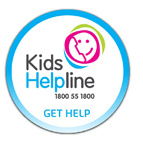Internet Safety: Parents
Mobile PhonesMobile phones
Mobile phones are a great way for children to stay in touch with their parents, family and friends. They allow users to make calls, take photos, play games, send texts (SMS) and images (MMS) and access the internet.
While mobile phones provide immediate contact and can be fun to use, 24/7 access and portability of the devices means that you may not always be available to supervise. Mobile use can expose children to potential risks including:
- excessive costs incurred from calls, text, premium services and downloads
- unsupervised internet access free of parental controls and filters
- access to GPS and Bluetooth capabilities which may enable others to locate them
- receipt of unwanted content including possible offensive or cyberbullying content
- the ability to share images of themselves, including naked or ‘sexting’ images.
Mobile phone costs
There are many different mobile phone services available for use with differing fees and charges. In some cases, such as pre-paid services, users don’t need to sign an ongoing service contract. For others, a contract is required.
The cost of calls, texts and downloads varies between mobile services. Before choosing a handset and service it’s worth checking the terms and conditions, such as whether a handset is included, what happens if your child loses the handset, the contract length and the charges for different types of services including SMSs, phone calls and internet access.
Contract or prepaid?
Contracts run for a set period during which the mobile phone company provides the customer with connection to a network, sometimes the use of a handset and a certain number of calls and text messages and data use per month. If the number of calls, texts or the download limit is exceeded at the end of each month, excess charges can be quite high.
Pre-paid mobile phone services offer more control over the amount spent. Rather than committing to an ongoing contract, credit is purchased from a service provider for use with a handset. A list of charges applies for calls, texts and data use. Once the credit runs out it needs to be topped up with more money before services, other than Triple Zero (000), can be accessed.
Some mobile phone companies also offer month-by-month plans without a fixed term contract for customers with their own handset providing greater flexibility. A fact sheet about mobiles phone services is available on the ACMA website.
What suits your child?
When making a phone available to your child, consider whether you need to limit their mobile phone use or whether they are responsible enough to understand how to manage their own phone. Remember this may be the first major financial responsibility for many children and they may need guidance or rules to help them understand and manage costs.
Mobile premium services
Mobile premium services, often referred to as premium SMS or MMS, are called premium because customers are charged a premium for using the service. This means that they cost more than a standard text or MMS. The cost varies and often appears in small print at the bottom of the advertisement for the service. These services are very popular with children as they offer access to ringtones, mobile phone wallpaper, games, music tracks and videos.
Premium services are generally accessed from mobile phones through a text to a number starting with 191, 193, 194, 195, 196, 197 and 199 or by subscribing online.
When the premium service is accessed there may be a one off cost for a single service, or there may be an ongoing subscription involved, with more messages received by the child in subsequent days or weeks at a cost. Some children unintentionally access a subscription service and don’t understand the costs involved until their credit has run out or a bill arrives.
To help manage your child’s use of premium services, encourage them to look at the terms, conditions and costs before texting a ’19 number’ or signing up online, or require them to show you the details first. Ongoing or subscription premium services are required to send a text to the mobile phone after the initial request for the service to confirm that a subscription service has been requested. Encourage your child to keep this message or record the details so they have an easy way to unsubscribe when they choose.
When accessing services that require children to download the content from the internet, such as games or video, mobile phone companies may also charge fees for data downloaded on top of the premium SMS charge. Check the phone contract or terms and conditions for data download charges.
Stopping and blocking premium services
If your child receives an unwanted premium service, help them to send a ‘STOP’ text to the service and any numbers messages are sent from. If you continue to receive messages more than one business day after the ‘STOP’ message was sent, contact the business’ helpline to make sure they received the message and are not still charging.
If you know the number the charges are coming from, but don’t know the helpline number, look it up at www.19sms.com.au. The helpline number can also be found in any subscription confirmation messages, reminder messages or expenditure update messages.
If you can’t resolve a problem with your bill or charges, contact the Telecommunications Industry Ombudsman (TIO) on 1800 062 058 or visit www.tio.com.au
If you are unsure whether your child can manage costs, talk to the phone provider about blocking their access to premium service numbers and the internet. Mobile phone providers must block all premium SMS or MMS services on request.
Where do I go for help?
Cybersmart Outreach internet safety awareness presentations
Cybersmart Outreach offers free Internet Safety Awareness presentations for parents, students and teachers. These sessions are informative, non-technical and available to all schools. Ask your child’s school if they have registered to host a parent presentation.





